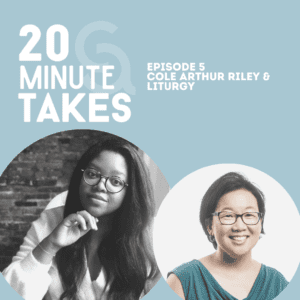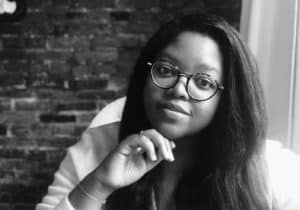
On Easter Sunday, I struggled.
I struggled to know the power of communion as I watched the woman across the room wearing a shirt with dream catchers and feathers all over it. I struggled with the reality of erasure, of oppression.
I struggled to understand the joy of the Easter story when a dear friend is in the hospital fighting for her life. We sing out “He is risen,” and my blood boils with cries of let her rise, too.
I know I must not be the only one who struggled to say, “Happy Easter” with a smile and a nod. I know I’m not the only doubter, the only one who is angry and overwhelmed with the stories of Jesus that just haven’t added up throughout the centuries.
For many of us, church holidays—including Easter—are confusing days.
For those of us who attend church, we enter in with people proclaiming, “He is risen!”
It’s as if then and there, we are supposed to say that there will not be pain on the earth ever again, because He is risen.
And yet, we know this not to be true.
Pain, oppression and hate walk among us and live in us. Those of us who carry intergenerational trauma know this well. Indigenous peoples whose ancestors have been abused by people using power and greed to play God know this too well.
What if Easter isn’t just a celebration of joy and deep peace, but a reminder once again that things are not as they should be?
What if Easter isn’t just a celebration of joy and deep peace, but a reminder once again that things are not as they should be? I imagine hope to have two lenses: The lens of the daily, the lens of right now; and the long-lasting lens of hope that keeps us going.
It’s like we are stretching our arms out to hold a rope that pulls from both ends, stretching our arms out praying for miracles. We hold the tension that surely Jesus held every day of his life.
Can we say that hope is here but there is still more hope to come?
Can we say shalom is here but isn’t fully arrived yet?
Can doubters gather with those who are sure?
Can mourners gather with those who have joy?
It must be so, or we do not participate fully in our humanity.
As my dear friend Tuhina has reminded me, multiple truths exist at once, and in order to destroy toxic duality, we sit in the tension.
We cook Easter meals and have Easter egg hunts and grieve that faith isn’t simple.
We see life and death intertwined and we cannot escape their realities.
Perhaps that’s as it should be. Perhaps that’s the only way to practice our faith. Perhaps honesty is the best, most painful journey.
Maybe the most simple thing is the actual gospel, and we are just longing for a Jesus that hasn’t been fed to us by empire, but the one who stood against it with his life, death, and resurrection.
Following Easter this year we celebrated Earth Day, a time to see and acknowledge, to remember that Segmekwe, Mother Earth, guides us, holds us, shows us the way to God.
We say Mno Waben, good morning. It is our promise that the sun will shine each day. It is a return to what we know, to sit with the earth, to listen.
Maybe the most simple thing is that seeds will become seedlings, and those seedlings will feed our souls and bellies. Maybe the most simple thing is the actual gospel, and we are just longing for a Jesus that hasn’t been fed to us by empire, but the one who stood against it with his life, death, and resurrection. Perhaps our always-longing and always-questioning will lead us to those seeds and that rest, and perhaps, today, that’s all we need. As Frederick Buechner wrote, “Here is the world. Beautiful and terrible things will happen. Don’t be afraid.”
past.
Kaitlin B. Curtice is a Native American Christian author, speaker and worship leader, and the author of Glory Happening: Finding the Divine in Everyday Places. As an enrolled member of the Potawatomi Citizen Band and someone who has grown up in the Christian faith, Kaitlin writes on the intersection of Native American spirituality, mystic faith in everyday life, and the church. She is a contributor to Sojourners, and you can also find her work on Patheos Progressive Christian. This article first appeared on her website, and is reprinted by permission.
is a Native American Christian author, speaker and worship leader, and the author of Glory Happening: Finding the Divine in Everyday Places. As an enrolled member of the Potawatomi Citizen Band and someone who has grown up in the Christian faith, Kaitlin writes on the intersection of Native American spirituality, mystic faith in everyday life, and the church. She is a contributor to Sojourners, and you can also find her work on Patheos Progressive Christian. This article first appeared on her website, and is reprinted by permission.


